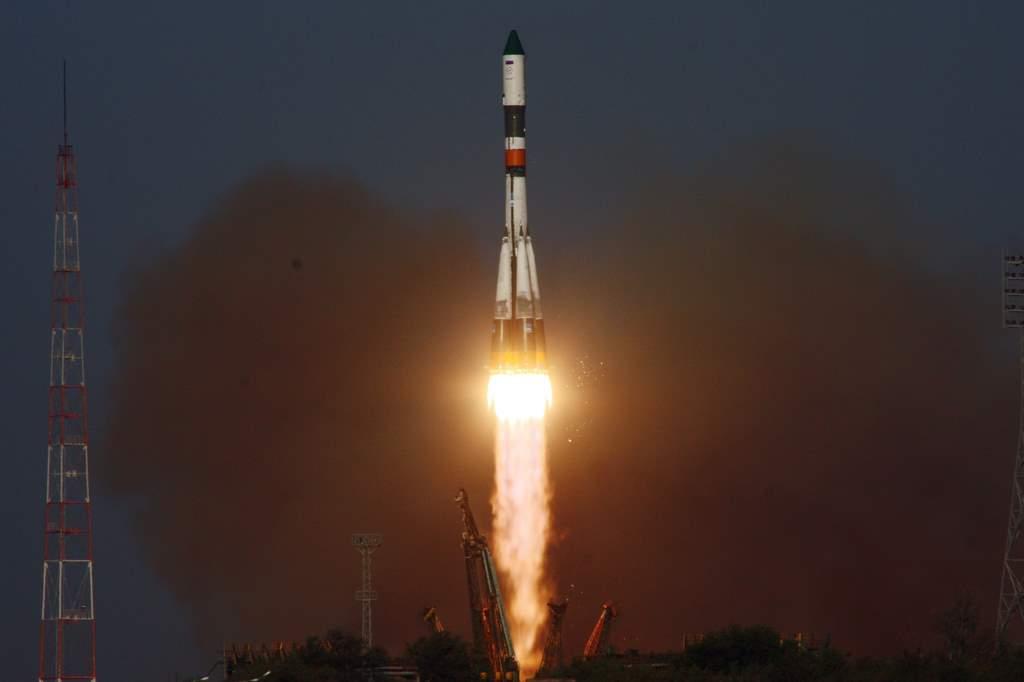Russian spacecraft crashes after launch
A Russian Progress-M-12M cargo ship carrying supplies for the International Space Station (ISS) blasts off from the launch pad at the Baikonour cosmodrome on August 24, 2011. A Russian supply ship carrying cargo for the International Space Station on Wednesday failed to reach orbit shortly after blast-off, with reports saying it may have crashed into the Earth. The unmanned Progress-M-12M vessel was carrying some several tonnes of supplies for the international crew on board the space station but failed to reach the correct orbit, Russian space agency Roskosmos said.
An unmanned Russian spacecraft carrying nearly three tons of supplies for the International Space Station crashed shortly after take-off on Wednesday.
NASA said a ISS Progress 44 spacecraft experienced a failure while climbing to orbit, and Mission Control Moscow lost contact with the rocket 5 minutes, 50 seconds after its launch.
The craft was carrying "2,050 pounds of propellant, 110 pounds of oxygen, 926 pounds of water, and 2,777 pounds of U.S. and Russian dry cargo," according to CNET.
The New York Times reports the cause of the problem was the Soyuz rocket carrying the craft. The rocket’s third-stage engine shut off before it should have, and the craft did not have enough velocity to reach orbit. The craft then crashed in Siberia, where the impact rattled windows for 60 miles.
In a press release, NASA said that the space station had plenty of supplies and a Russian commission will be formed to investigate the crash.
According to the Times, the loss of the supplies won't have an immediate effect on the space station. But if engineers fail to diagnose and fix the problem quickly, it could lead to some hard decisions.
The Soyuz rocket that failed is similar to the ones used to take crew members into orbit, and a set of three crew members are scheduled to go up in September.
Further, the Soyuz capsules in which the crew members ride also serve as lifeboats in case of an emergency, and the capsules are allowed to stay at the station for up to 210 days.
It means that three crew members will probably have to return to earth in one of the Soyuz capsules docked at the station by October at the latest. Without replacements, that would leave only three people to operate the station, greatly reducing the time they can devote to running experiments.
And if no fix for the problem is found before the crew needs to return to Earth, the space station would have to be left unoccupied.
Still, CNET reports that because of the Soyuz rocket's safety record — 745 successful launches and just 21 failures in nearly four decades — NASA is confident that Russian engineers will solve the problem before the space station's crew needs to be reduced.
We want to hear your feedback so we can keep improving our website, theworld.org. Please fill out this quick survey and let us know your thoughts (your answers will be anonymous). Thanks for your time!
